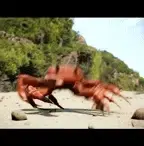Watch and read as much youtube and article as possible, and try to join a discussion with open mind.
sci-hub and annas-archive
I want to be less reliant on Wikipedia and Google Scholar, but in truth I still use them a lot
So you directly read papers on those topics? I tried doing that but I feel it requires a huge amount of background
Wikipedia editors are petty and incredibly biased. Start reading the talk pages, especially on controversial articles, and your opinion on Wikipedia’s objectivity will rapidly plummet.
Also, it’s a bit like reddit: you find yourself learning so much about new topics, until you start reading about things you have actual expertise on, and you realize the people writing this shit are uninformed idiots, and, when you try to fix the information, the petty nerds who control it revert your changes and ban you.
I watch videos and read articles and use LLMs to give me the key points to grasp the basics. Then build upon that knowledge with more focused learning.
My first stop is always Wikipedia. The rest of the internet is a minefield.
Read. Write. Execute. RWX. I'm going to piss some people off. Here goes: you are wasting your time if you watch videos. At all. A video moves at the pace it plays. It is linear. You can't jump around easily. Reading? You can jump wherever you need immediately. You can have multiple sources at once. If you use a book, yes a physical book, you learn where things are and jump right to them. Read
Write down a paraphrased version of what you read. Do not copy. Include references so you can return to source if needed. Note taking is a skill. Your notes should be organized in a way you can skim what you wrote as easily as the sources themselves.
Execute. You don't learn anything unless you do it. I've had too many students who watch Khan Academy, and think they understand it when they haven't done it. They don't score well on exams. Not my fault. I told them they have to do it to understand it.
RWX. I await the flame war I just started with the video people.
Reading papers and contacting people in that field. I've found that university professors can especially direct you to materials in their field, and even like to chat about it sometimes. Half of my book collection was found this way.
You have to set a goal of what you want to understand and why you want to understand it, then read accordingly. If your goal is to know the usual number of eggs laid by a bird because you are trying to identify one from its nest in your yard, sure just read some Wikipedia and maybe read its sources. If you need to understand a broad topic in the social sciences in order to do your job or organize politically, well sucks yo be you, you need to spend months to years getting a handle on the various schools of thought and approaching them humbly and critically, reading many books.
Youtube u gotta get the widest set of opinions possible. Unfortunatly peertube just lacks content.
I repeat what I said to the other commenter: how do you find actual good and trustable channels on a specific topic?
Trying to learn from 'youtubers' seems like asking for trouble.
Lectures posted on youtube etc. are different I suppose.
Well u need to know enough about sonthing before you cant tell if your being bullshit or not. Generally i just try get every single perspective i can and make my own decision. I assume everyone has a slant but by watching everyone u can cancel that out.







